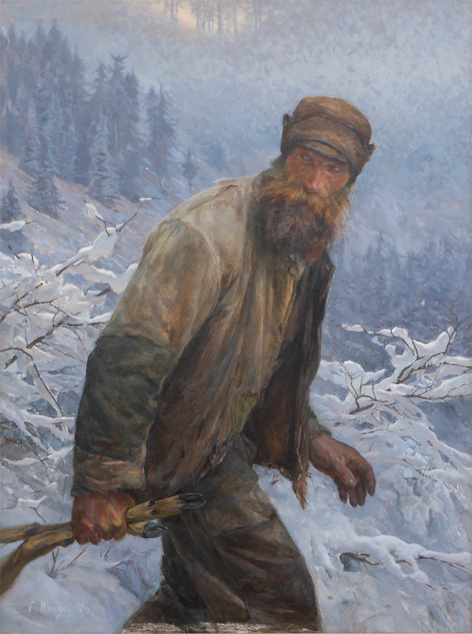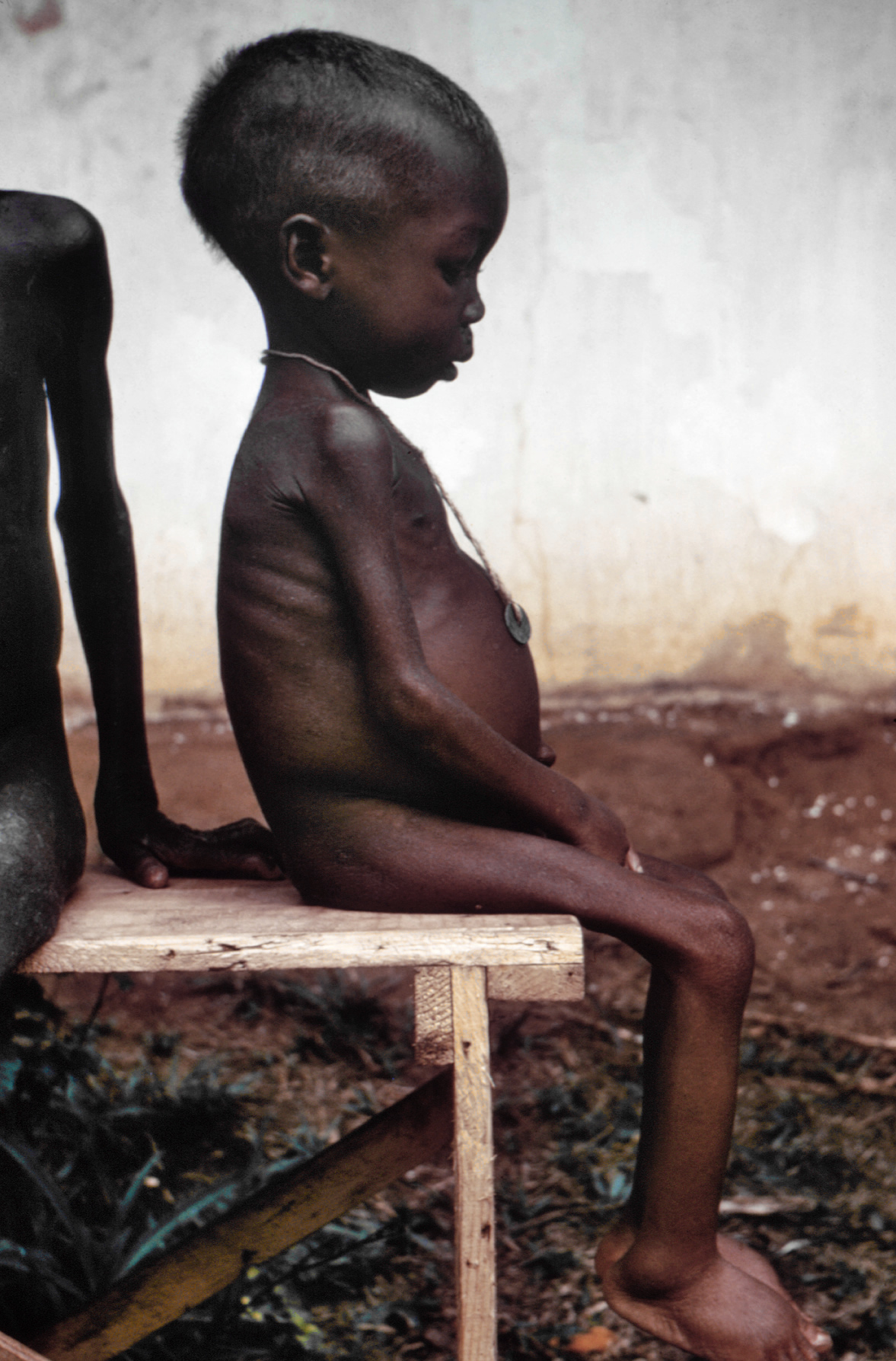|
Danny Corcoran (ranger)
Danny Corcoran ''(1916 – April 7, 1936)'' was Newfoundland Ranger (policeman) who died in an incident which many people believe to be tragic, as he was only 22 years old, on a solo expedition across the wilds of Newfoundland's Great Northern Peninsula. Death Corcoran had set off into the wilderness in the dead of winter in an attempt to protect the local caribou population from poachers. However, the young ranger became lost and suffered severely from frostbite and starvation. As a popular and well-respected ranger in the Peninsula's coastal communities, a large-scale rescue effort was mounted to find Corcoran. Hampered by adverse weather conditions, Corcoran was not found until 17 days after first becoming lost. He was taken by boat to St. Anthony and died shortly thereafter. Later acknowledgement His death and a love interest have made his life the subject of local lore. His destiny and his personality were immortalized in the book, "Will Anyone Search for Danny?" b ... [...More Info...] [...Related Items...] OR: [Wikipedia] [Google] [Baidu] |
Dominion Of Newfoundland
Newfoundland was a British dominion in eastern North America, today the modern Canadian province of Newfoundland and Labrador. It was established on 26 September 1907, and confirmed by the Balfour Declaration of 1926 and the Statute of Westminster of 1931. It included the island of Newfoundland, and Labrador on the continental mainland. Newfoundland was one of the original dominions within the meaning of the Balfour Declaration and accordingly enjoyed a constitutional status equivalent to the other dominions of the time. In 1934, Newfoundland became the only dominion to give up its self-governing status, which ended 79 years of self-government. The abolition of self-government came about because of a crisis in Newfoundland's public finances in 1932. Newfoundland had accumulated a significant amount of debt by building a railway across the island, which was completed in the 1890s, and by raising its own regiment during World War I. In November 1932, the government warn ... [...More Info...] [...Related Items...] OR: [Wikipedia] [Google] [Baidu] |
Great Northern Peninsula
The Great Northern Peninsula ( Inuttitut: ''Ikkarumiklua'') is the largest and longest peninsula of Newfoundland, Canada, approximately 270 km long and 90 km wide at its widest point and encompassing an area of 17,483 km2. It is defined as that part of Newfoundland from Bonne Bay northwards around Cape Norman and Cape Bauld and thence southwards to the head of White Bay, bounded by the Gulf of St. Lawrence on the west, the Strait of Belle Isle on the north and the Labrador Sea and White Bay on the east. The vast majority of the peninsula is located within Division No. 9, Newfoundland and Labrador, except for the southeastern corner, which is part of Subdivision G of Division No. 5, Newfoundland and Labrador. In 1991, the peninsula had 23,854 inhabitants. By 2016, however, the population had decreased to 15,607, further decreased to 14,733 in 2021. St. Anthony is the largest population centre on the peninsula. A ferry service operates at the western part of t ... [...More Info...] [...Related Items...] OR: [Wikipedia] [Google] [Baidu] |
Caribou
Reindeer (in North American English, known as caribou if wild and ''reindeer'' if domesticated) are deer in the genus ''Rangifer''. For the last few decades, reindeer were assigned to one species, ''Rangifer tarandus'', with about 10 subspecies. A 2022 revision of the genus elevated five of the subspecies to species (see Taxonomy below). They have a circumpolar distribution and are native to the Arctic, sub-Arctic, tundra, boreal forest, and mountainous regions of northern Europe, Siberia, and North America. Reindeer occur in both migratory and sedentary populations, and their herd sizes vary greatly in different regions. The tundra subspecies are adapted for extreme cold, and some are adapted for long-distance migration. Reindeer vary greatly in size and color from the smallest species, the Svalbard reindeer (''R. t. platyrhynchus''), to the largest subspecies, Osborn's caribou (''R. t. osborni''). Although reindeer are quite numerous, some species and subspecies ... [...More Info...] [...Related Items...] OR: [Wikipedia] [Google] [Baidu] |
Poaching
Poaching has been defined as the illegal hunting or capturing of wild animals, usually associated with land use rights. Poaching was once performed by impoverished peasants for subsistence purposes and to supplement meager diets. It was set against the hunting privileges of nobility and territorial rulers. Since the 1980s, the term "poaching" has also been used to refer to the illegal harvesting of wild plant species. In agricultural terms, the term 'poaching' is also applied to the loss of soils or grass by the damaging action of feet of livestock, which can affect availability of productive land, water pollution through increased runoff and welfare issues for cattle. Stealing livestock as in cattle raiding classifies as theft, not as poaching. The United Nations' Sustainable Development Goal 15 enshrines the sustainable use of all wildlife. It targets the taking of action on dealing with poaching and trafficking of protected species of flora and fauna to ensure their avail ... [...More Info...] [...Related Items...] OR: [Wikipedia] [Google] [Baidu] |
Frostbite
Frostbite is a skin injury that occurs when exposed to extreme low temperatures, causing the freezing of the skin or other tissues, commonly affecting the fingers, toes, nose, ears, cheeks and chin areas. Most often, frostbite occurs in the hands and feet. The initial symptoms are typically a feeling of cold and tingling or numbing. This may be followed by clumsiness with a white or bluish color to the skin. Swelling or blistering may occur following treatment. Complications may include hypothermia or compartment syndrome. People who are exposed to low temperatures for prolonged periods, such as winter sports enthusiasts, military personnel, and homeless individuals, are at greatest risk. Other risk factors include drinking alcohol, smoking, mental health problems, certain medications, and prior injuries due to cold. The underlying mechanism involves injury from ice crystals and blood clots in small blood vessels following thawing. Diagnosis is based on symptoms. Severity ma ... [...More Info...] [...Related Items...] OR: [Wikipedia] [Google] [Baidu] |
Starvation
Starvation is a severe deficiency in caloric energy intake, below the level needed to maintain an organism's life. It is the most extreme form of malnutrition. In humans, prolonged starvation can cause permanent organ damage and eventually, death. The term ''inanition'' refers to the symptoms and effects of starvation. Starvation may also be used as a means of torture or execution. According to the World Health Organization (WHO), hunger is the single gravest threat to the world's public health.Malnutrition The Starvelings The WHO also states that is by far the biggest contributor to [...More Info...] [...Related Items...] OR: [Wikipedia] [Google] [Baidu] |
Earl Pilgrim
Earl () is a rank of the nobility in the United Kingdom. The title originates in the Old English word ''eorl'', meaning "a man of noble birth or rank". The word is cognate with the Scandinavian form '' jarl'', and meant "chieftain", particularly a chieftain set to rule a territory in a king's stead. After the Norman Conquest, it became the equivalent of the continental count (in England in the earlier period, it was more akin to a duke; in Scotland, it assimilated the concept of mormaer). Alternative names for the rank equivalent to "earl" or "count" in the nobility structure are used in other countries, such as the ''hakushaku'' (伯爵) of the post-restoration Japanese Imperial era. In modern Britain, an earl is a member of the peerage, ranking below a marquess and above a viscount. A feminine form of ''earl'' never developed; instead, ''countess'' is used. Etymology The term ''earl'' has been compared to the name of the Heruli, and to runic '' erilaz''. Proto-Norse '' ... [...More Info...] [...Related Items...] OR: [Wikipedia] [Google] [Baidu] |
List Of People Of Newfoundland And Labrador
A ''list'' is any set of items in a row. List or lists may also refer to: People * List (surname) Organizations * List College, an undergraduate division of the Jewish Theological Seminary of America * SC Germania List, German rugby union club Other uses * Angle of list, the leaning to either port or starboard of a ship * List (information), an ordered collection of pieces of information ** List (abstract data type), a method to organize data in computer science * List on Sylt, previously called List, the northernmost village in Germany, on the island of Sylt * ''List'', an alternative term for ''roll'' in flight dynamics * To ''list'' a building, etc., in the UK it means to designate it a listed building that may not be altered without permission * Lists (jousting), the barriers used to designate the tournament area where medieval knights jousted * ''The Book of Lists'', an American series of books with unusual lists See also * The List (other) * Listing ... [...More Info...] [...Related Items...] OR: [Wikipedia] [Google] [Baidu] |
1916 Births
Events Below, the events of the First World War have the "WWI" prefix. January * January 1 – The British Royal Army Medical Corps carries out the first successful blood transfusion, using blood that had been stored and cooled. * January 9 – WWI: Gallipoli Campaign: The last British troops are evacuated from Gallipoli, as the Ottoman Empire prevails over a joint British and French operation to capture Constantinople. * January 10 – WWI: Erzurum Offensive: Russia defeats the Ottoman Empire. * January 12 – The Gilbert and Ellice Islands Colony, part of the British Empire, is established in present-day Tuvalu and Kiribati. * January 13 – WWI: Battle of Wadi: Ottoman Empire forces defeat the British, during the Mesopotamian campaign in modern-day Iraq. * January 29 – WWI: Paris is bombed by German zeppelins. * January 31 – WWI: An attack is planned on Verdun, France. February * February 9 – 6.00 p.m. – Tristan Tzara ... [...More Info...] [...Related Items...] OR: [Wikipedia] [Google] [Baidu] |
1938 Deaths
Events January * January 1 ** The Constitution of Estonia#Third Constitution (de facto 1938–1940, de jure 1938–1992), new constitution of Estonia enters into force, which many consider to be the ending of the Era of Silence and the authoritarian regime. ** state-owned enterprise, State-owned railway networks are created by merger, in France (SNCF) and the Netherlands (Nederlandse Spoorwegen – NS). * January 20 – King Farouk of Egypt marries Safinaz Zulficar, who becomes Farida of Egypt, Queen Farida, in Cairo. * January 27 – The Honeymoon Bridge (Niagara Falls), Honeymoon Bridge at Niagara Falls, New York, collapses as a result of an ice jam. February * February 4 ** Adolf Hitler abolishes the War Ministry and creates the Oberkommando der Wehrmacht (High Command of the Armed Forces), giving him direct control of the German military. In addition, he dismisses political and military leaders considered unsympathetic to his philosophy or policies. Gene ... [...More Info...] [...Related Items...] OR: [Wikipedia] [Google] [Baidu] |







